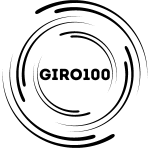Belo Horizonte, the vibrant capital of Minas Gerais, is known for its rich cultural heritage, stunning landscapes, and delicious mineira cuisine. However, like many urban centers, it faces challenges related to pollution and environmental toxins. While the direct effects of air and water pollution on our respiratory system are often highlighted, a growing body of scientific research reveals a less obvious but equally concerning impact: the detrimental effects of these environmental aggressors on our gut health.
Our gut, a complex ecosystem teeming with trillions of microorganisms, plays a pivotal role in digestion, immunity, mood regulation, and overall well-being. When this delicate balance is disrupted, it can lead to a cascade of health problems. Unfortunately, the air we breathe, the water we drink, and even the food we consume in a polluted environment can introduce a cocktail of toxins that directly and indirectly harm our gut microbiome and the integrity of our digestive system.
This comprehensive guide will delve into the significant impact of various forms of pollution and toxins prevalent in urban environments like Belo Horizonte on our gut health. We will explore the scientific mechanisms at play and, importantly, provide practical strategies and actionable steps that residents of BH and beyond can take to mitigate these effects and cultivate a healthier gut microbiome in the face of environmental challenges.
Understanding the Gut Microbiome: A Delicate Ecosystem Under Siege
Our gut microbiome is a diverse community of bacteria, fungi, viruses, and other microbes living in our digestive tract. A healthy, balanced microbiome is essential for:
- Digesting food and absorbing nutrients.
- Synthesizing vitamins.
- Educating and regulating the immune system.
- Protecting against harmful pathogens.
- Communicating with the brain via the gut-brain axis.
When exposed to pollutants and toxins, this delicate ecosystem can become imbalanced, a state known as dysbiosis. Dysbiosis is linked to a wide range of health issues, including:
- Irritable Bowel Syndrome (IBS)
- Inflammatory Bowel Disease (IBD)
- Food sensitivities
- Autoimmune diseases
- Mental health disorders
- Obesity and metabolic syndrome
The Assault on Our Gut: Common Pollutants and Their Effects
Several types of pollution and toxins can significantly impact gut health:
1. Air Pollution: Microscopic Threats with Systemic Effects
- Particulate Matter (PM2.5, PM10): Common in urban areas due to traffic, industrial emissions, and even biomass burning, these tiny particles can be inhaled and also ingested after settling on surfaces, including food and water. Studies have shown that exposure to particulate matter can alter the composition and diversity of the gut microbiome, increasing the abundance of pro-inflammatory bacteria and decreasing beneficial species. This can lead to increased intestinal permeability (“leaky gut”) and systemic inflammation.
- Gaseous Pollutants (Ozone, Nitrogen Dioxide, Sulfur Dioxide): These gases, prevalent in polluted air, can also indirectly affect gut health by causing systemic inflammation and oxidative stress. Chronic exposure can disrupt the gut barrier function and alter the gut microbiota.
2. Water Pollution: Hidden Dangers in Every Sip
- Heavy Metals (Lead, Mercury, Arsenic): Industrial discharge and mining activities (historically significant in Minas Gerais) can contaminate water sources with heavy metals. Ingesting even small amounts of these toxins can directly harm the gut lining and disrupt the delicate balance of the microbiome. Heavy metals can also accumulate in the body and have far-reaching negative health consequences.
- Industrial Chemicals and Pesticides: Runoff from agricultural and industrial areas can introduce a variety of chemicals and pesticides into water sources. These substances can have direct toxic effects on gut bacteria, reducing diversity and promoting the growth of harmful microorganisms. Some pesticides have been shown to disrupt the gut barrier and increase inflammation.
- Pharmaceutical Residues: Wastewater treatment plants may not completely remove pharmaceutical residues from medications. Low levels of antibiotics and other drugs in drinking water can contribute to antibiotic resistance in gut bacteria and disrupt the natural balance of the microbiome.
- Microplastics: Increasingly found in water sources, microplastics can be ingested and may potentially disrupt the gut microbiome and contribute to inflammation.
3. Food Contamination: A Direct Route to Gut Disruption
- Pesticide Residues on Produce: Even with washing, trace amounts of pesticides can remain on fruits and vegetables, potentially impacting the gut microbiome over time.
- Heavy Metal Accumulation in Food: Fish and other food sources can accumulate heavy metals from polluted environments.
- Processed Foods and Additives: While not strictly “pollution,” the high levels of preservatives, artificial sweeteners, emulsifiers, and other additives in many processed foods common in urban diets can negatively alter the gut microbiome, often reducing diversity and promoting inflammation. Certain emulsifiers, for example, have been shown to disrupt the gut barrier.
4. Household Toxins: The Hidden Environment Within
- Cleaning Products: Harsh chemicals in many household cleaners can be inhaled or ingested through contact with surfaces, potentially impacting the gut microbiome indirectly through systemic inflammation.
- Plasticizers (BPA, Phthalates): These chemicals, found in some plastics and food packaging, can leach into food and water and have been linked to gut dysbiosis and increased intestinal permeability.
Protecting Your Gut in Belo Horizonte: Actionable Strategies
While the challenge of pollution can feel overwhelming, there are practical steps that residents of Belo Horizonte and other urban areas can take to mitigate its impact on their gut health:
1. Prioritize Clean Water Sources:
- Consider Water Filters: Investing in a high-quality water filter for your home can help remove heavy metals, chlorine, and other contaminants. Look for filters certified to remove specific pollutants of concern in your area.
- Be Aware of Water Quality Reports: Pay attention to local water quality reports and advisories issued by COPASA (the water and sanitation company of Minas Gerais) or other relevant authorities.
- Choose Filtered Water When Out: When eating out or on the go, opt for filtered water whenever possible.
2. Make Informed Food Choices:
- Wash Produce Thoroughly: Rinse fruits and vegetables under running water to help remove surface pesticide residues and dirt.
- Support Local and Organic Agriculture: When possible, choose locally grown and organic produce, which typically has lower levels of pesticide residues. Look for feira orgânica (organic farmers markets) in your neighborhood.
- Choose Responsibly Sourced Meats and Fish: Opt for meats and fish raised or caught in environments with lower levels of pollution.
- Limit Processed Foods: Reduce your intake of highly processed foods with artificial additives, preservatives, and excessive sugars. Focus on whole, unprocessed ingredients.
- Consider Probiotic and Prebiotic Rich Foods: Support a healthy gut microbiome by including fermented foods like iogurte natural, kefir, and naturally fermented vegetables in your diet. Consume prebiotic-rich foods like bananas, oats, garlic, and onions.
3. Improve Indoor Air Quality:
- Ventilate Your Home Regularly: Open windows to allow fresh air circulation, especially during times of lower outdoor air pollution.
- Use Air Purifiers: Consider using air purifiers with HEPA filters to remove particulate matter and other airborne pollutants from your indoor environment.
- Choose Natural Cleaning Products: Opt for cleaning products made with natural ingredients to reduce exposure to harsh chemicals.
- Be Mindful of Indoor Toxins: Avoid using air fresheners with synthetic fragrances and ensure good ventilation when using paints or other chemicals indoors.
4. Support Your Body’s Natural Detoxification Pathways:
- Stay Hydrated: Drinking plenty of water helps your kidneys and liver flush out toxins.
- Eat Fiber-Rich Foods: Fiber aids in the elimination of waste products through the digestive system.
- Engage in Regular Exercise: Physical activity promotes circulation and helps the body detoxify through sweat.
- Support Liver Health: Consume liver-supporting foods like cruciferous vegetables (broccoli, cauliflower) and consider herbs like milk thistle (consult a healthcare professional).
5. Be Aware and Advocate:
- Stay Informed About Local Pollution Levels: Monitor air and water quality reports for Belo Horizonte.
- Support Environmental Initiatives: Participate in or support local environmental groups working to reduce pollution in your community.
- Advocate for Stronger Environmental Regulations: Encourage policymakers to implement and enforce stricter regulations on industrial emissions and waste disposal.
Empowering Gut Health in a Polluted World
While the presence of pollution and toxins in urban environments like Belo Horizonte poses a significant challenge to our gut health, understanding these impacts empowers us to take proactive steps. By prioritizing clean water and food sources, improving indoor air quality, supporting our body’s natural detoxification processes, and staying informed and engaged in environmental issues, we can build resilience and cultivate a healthier gut microbiome despite the environmental stressors around us. Taking these conscious steps is an investment in our long-term health and well-being, allowing us to continue to enjoy the beauty and vibrancy of Minas Gerais with a stronger, more balanced digestive system.

I’m Caroline Dhavernas, passionate about gut health and overall well-being. Through my journey, I’ve explored the profound connection between nutrition and digestive health, sharing insights to help others achieve balance and vitality. Let’s embark on a path to a healthier gut together!

